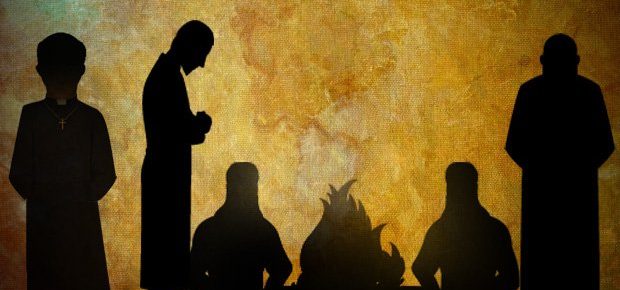
The Supreme Court has quashed a case of alleged forcible religious conversion, after the man who was allegedly converted gave evidence during trial that he was made to sign some papers, on the basis of which this case was filed in the first place.
The appeal challenged the judgement passed by Madhya Pradesh High Court on August 27, 2020, refusing to quash the offences under the MP Freedom of Religion Act. It was alleged that the appellant converted one Dharmendar Dohar to Christianity and violated section 3 of the MP Freedom of Religion Act, 1968. The appellant, George Mangalapilly, was also charged under Sections 153-B(1) (Imputations, assertions prejudicial to national-integration) and 295-A (Deliberate and malicious acts, intended to outrage religious feelings of any class by insulting its religion or religious beliefs) of the IPC.
During trial, Dohar denied that he was converted by the appellant and stated instead that his signature was taken on a piece of paper by some people, on the basis of which this case was lodged under the Act alleging forceful conversion. Dohar was deemed a hostile witness.
The bench observed that Dohar’s statement under section 164 of CrPC given before the Judicial Magistrate is identical to the statement given by him during trial in his examination-in-chief.
The appellant thus sought quashing of proceedings against him and approached the high court. The high court accepted the submissions in respect of offences punishable under Sections 153-B(1) and 295-A IPC while observing that in the absence of requisite sanction, the appellant could not be prosecuted in respect of said offences. However, with regards to offences under the Freedom of Religion Act, the court stated that evidence led before the trial court could not be relied upon to grant benefit under section 482 of CrPC to quash the proceedings. The case under Freedom of Religion Act was thus not quashed. The appellant thus filed this appeal before the Supreme Court against the High Court’s judgement.
At the outset, the court observed, “Apart from the testimony of the witness, there is nothing else on record which could potentially be relied upon against the appellant.” The court further observed that “when the entire fulcrum of the prosecution rests upon the version of the man who was stated to be forcibly converted, in our view, the testimony of said person assumes great significance.” As per his version, he was not forcibly converted and neither was he contacted by the appellant at any point.
The man who was purported to have been forcibly converted as per the FIR, was in fact, not converted by the appellant as he clearly stated before the Magistrate as well as at the trial court during trial. His unwavering assertion convinced the Supreme Court since the entire cases rests upon this man who is supposed to have been forcibly converted.
The court, thus, allowed the appeal and quashed the proceedings against the appellant in respect of offence punishable under Section 3 & 4 of the MP Freedom of Religion Act.
The order may be read here:
Related:
Allahabad HC grants bail in alleged conversion case
Police cracking down on voluntary interfaith unions in Guj, UP